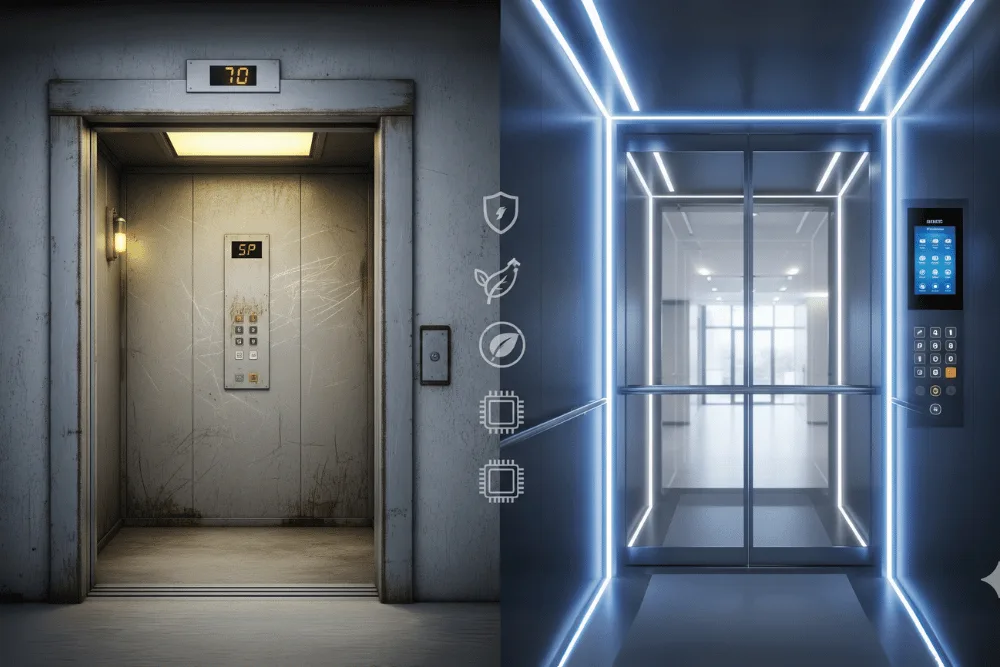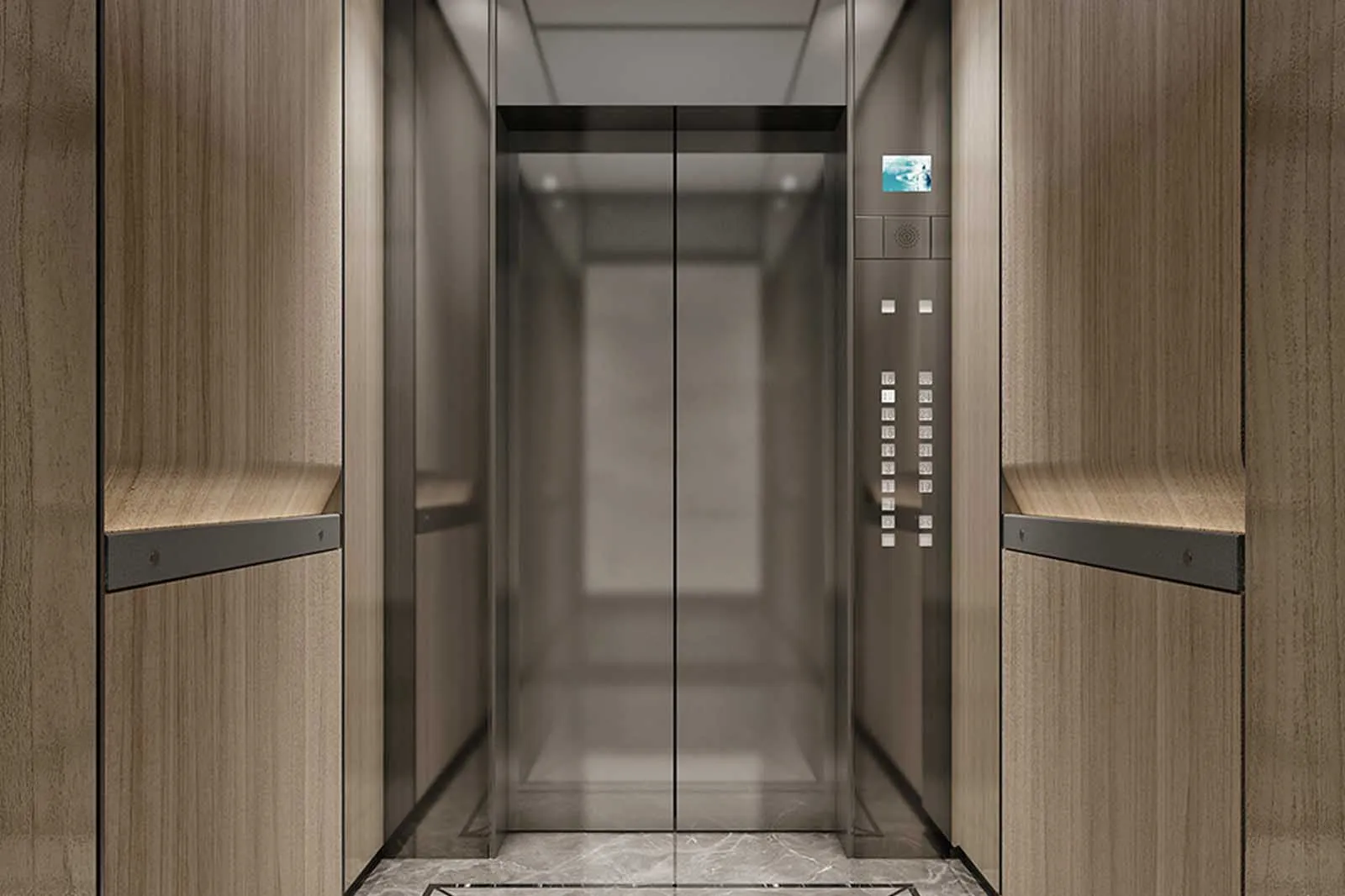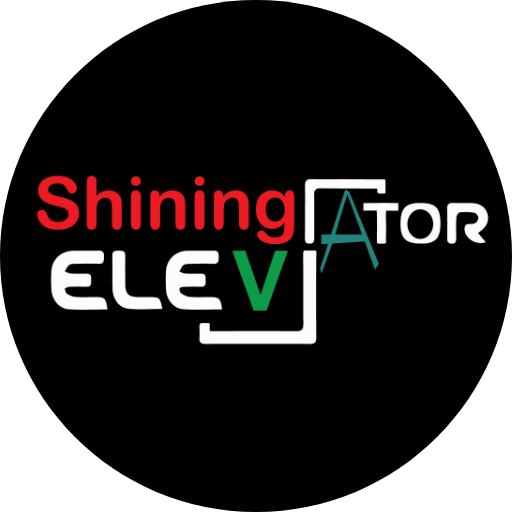Step into an old lift in a residential building or a commercial complex and you’ll often notice the same signs—slow doors, jerky rides, outdated buttons, maybe even a faint rattling sound. Elevators, like all machines, age with time. But here’s the good news: you don’t always need to replace them completely. Elevator modernization offers a smarter, cost-effective way to transform old lifts into safe, reliable, and energy-efficient systems.
In India, where high-rise living and commercial towers are expanding rapidly, elevator modernization is becoming a critical part of infrastructure upgrades. Let’s explore why it matters, what benefits it brings, and the latest technologies shaping the industry.

What is Elevator Modernization?
Elevator modernization is the process of upgrading the key components of an existing lift—such as the control system, motor, doors, and interiors—so that it performs like a new one without needing a full replacement.
Think of it like renovating a home. Instead of tearing the entire structure down, you upgrade the flooring, plumbing, wiring, and appliances to match today’s standards. With lifts, modernization means better performance, safety, and comfort at a fraction of the cost of a new installation.
Why Elevator Modernization Matters in India
India is home to thousands of elevators installed decades ago in housing societies, hospitals, government buildings, and offices. Many of these are still operational, but their technology is outdated. As buildings get taller and safety regulations get stricter, old lifts often fall short.
The demand for modernization in India is growing because of:
- Rising safety concerns in older buildings.
- Energy efficiency mandates to cut power consumption.
- Urban redevelopment projects in metros like Mumbai and Delhi.
- Increased usage as high-rises accommodate more residents and visitors.
Modernization helps building owners extend the life of their elevators while meeting today’s performance and safety benchmarks.
Key Benefits of Elevator Modernization
1. Enhanced Safety
Safety is the number one reason for modernization. New systems come with:
- Door sensors that prevent accidents.
- Emergency auto-rescue devices that bring the lift to the nearest floor during power failures.
- Seismic sensors and overload protection to comply with modern codes.
This gives residents and visitors peace of mind every time they step inside.
2. Improved Ride Comfort
No more jerky stops, noisy movements, or long waiting times. Modernized lifts use:
- Advanced traction systems for smoother rides.
- Noise-reduction technology.
- Faster door operations and floor-to-floor travel.
The result is a comfortable, near-silent experience.
3. Energy Efficiency
Old elevators are energy guzzlers. New-age systems reduce electricity use by up to 30–40%. This is possible with:
- Regenerative drives that recycle energy back into the building’s grid.
- Efficient motors that use less power.
- LED lighting and smart standby modes when the lift is idle.
Over time, this translates to huge savings on energy bills.
4. Cost-Effective Alternative to Replacement
Installing a brand-new elevator is expensive and disruptive. Modernization is faster, less invasive, and more affordable. Instead of months of downtime, upgrades can often be completed in weeks, minimizing inconvenience to residents or employees.
5. Higher Property Value
For residential complexes, a modern lift is a strong selling point. For commercial spaces, it’s a symbol of professionalism and safety. Either way, modernization increases the building’s overall appeal and long-term value.
Latest Technology in Elevator Modernization
Smart Control Systems
Old relay-based systems are being replaced with microprocessor-based controllers. These improve traffic handling, reduce waiting times, and allow for features like destination control, where passengers select their floor before entering the lift.
IoT and Remote Monitoring
Modernized elevators can be connected to the internet for real-time performance tracking. Building managers receive alerts on maintenance needs before breakdowns occur, ensuring maximum uptime.
Regenerative Drives
This technology allows lifts to feed excess energy back into the building’s power supply while descending. It’s a major step toward green building certification and sustainable operations.
Touchless Operation
Post-pandemic, touchless technology is in demand. Voice-activated commands, mobile app integration, and QR code scanning are being introduced in many Indian buildings.
Design Upgrades
Modernization isn’t only about mechanics. Elevator cabins can be redesigned with LED panels, stainless steel finishes, digital displays, and ambient lighting to match the aesthetics of modern interiors.
Elevator Modernization Process in India
- Assessment: A survey is done to check the condition of the existing lift.
- Proposal: Engineers suggest upgrades based on safety, performance, and budget.
- Component Replacement: Critical parts like the controller, motor, doors, and cabin get replaced.
- Testing & Certification: The lift is tested for safety compliance before being handed over.
Cost of Elevator Modernization in India
The cost varies widely depending on the scope:
- Partial modernization (basic upgrades): ₹3–6 lakh per lift.
- Full modernization (major upgrades): ₹8–15 lakh per lift.
- Luxury or smart modernization: ₹15 lakh+ with advanced features.
While it feels like a big upfront investment, the long-term savings, energy efficiency, and safety make it worth every rupee.
The Road Ahead
With India’s rapid urban growth, modernization will only gain momentum. The focus will be on:
- Smart city integration with connected elevators.
- AI-driven predictive maintenance.
- Eco-friendly designs aligned with green building standards.
- Universal accessibility for differently-abled users.
Final Thoughts
Elevator modernization in India isn’t just about upgrading a machine—it’s about upgrading the entire living and working experience. From safety and comfort to energy efficiency and smart technology, the benefits are too significant to ignore.
For building owners, the choice is clear: invest in modernization today, and ensure that your property is safer, smarter, and future-ready for the decades ahead.



